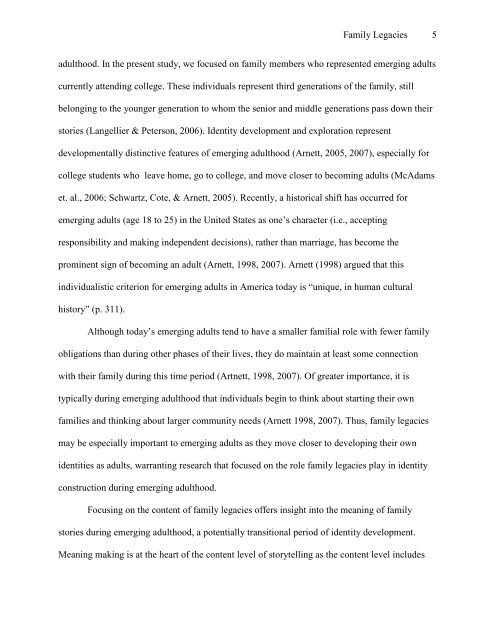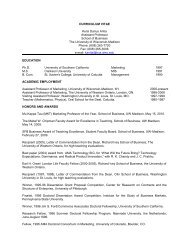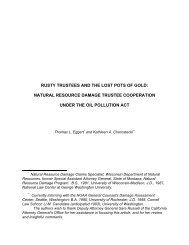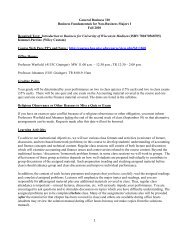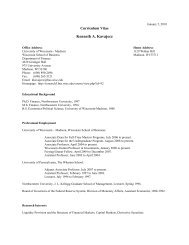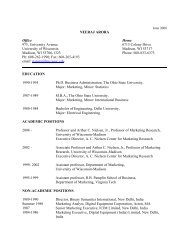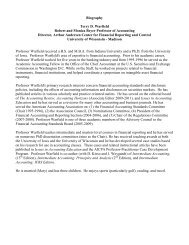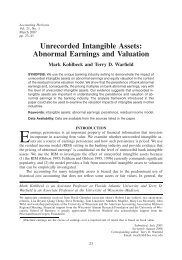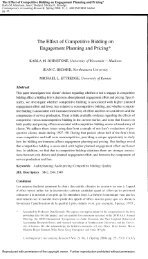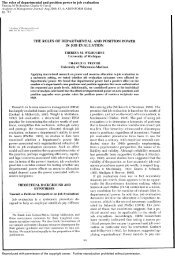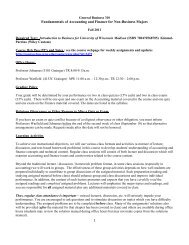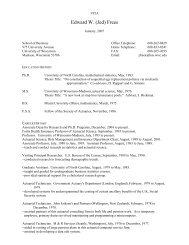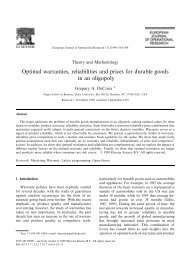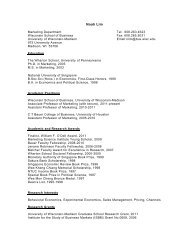family legacies - Wisconsin School of Business - University of ...
family legacies - Wisconsin School of Business - University of ...
family legacies - Wisconsin School of Business - University of ...
Create successful ePaper yourself
Turn your PDF publications into a flip-book with our unique Google optimized e-Paper software.
Family Legacies<br />
adulthood. In the present study, we focused on <strong>family</strong> members who represented emerging adults<br />
currently attending college. These individuals represent third generations <strong>of</strong> the <strong>family</strong>, still<br />
belonging to the younger generation to whom the senior and middle generations pass down their<br />
stories (Langellier & Peterson, 2006). Identity development and exploration represent<br />
developmentally distinctive features <strong>of</strong> emerging adulthood (Arnett, 2005, 2007), especially for<br />
college students who leave home, go to college, and move closer to becoming adults (McAdams<br />
et. al., 2006; Schwartz, Cote, & Arnett, 2005). Recently, a historical shift has occurred for<br />
emerging adults (age 18 to 25) in the United States as one’s character (i.e., accepting<br />
responsibility and making independent decisions), rather than marriage, has become the<br />
prominent sign <strong>of</strong> becoming an adult (Arnett, 1998, 2007). Arnett (1998) argued that this<br />
individualistic criterion for emerging adults in America today is “unique, in human cultural<br />
history” (p. 311).<br />
Although today’s emerging adults tend to have a smaller familial role with fewer <strong>family</strong><br />
obligations than during other phases <strong>of</strong> their lives, they do maintain at least some connection<br />
with their <strong>family</strong> during this time period (Artnett, 1998, 2007). Of greater importance, it is<br />
typically during emerging adulthood that individuals begin to think about starting their own<br />
families and thinking about larger community needs (Arnett 1998, 2007). Thus, <strong>family</strong> <strong>legacies</strong><br />
may be especially important to emerging adults as they move closer to developing their own<br />
identities as adults, warranting research that focused on the role <strong>family</strong> <strong>legacies</strong> play in identity<br />
construction during emerging adulthood.<br />
Focusing on the content <strong>of</strong> <strong>family</strong> <strong>legacies</strong> <strong>of</strong>fers insight into the meaning <strong>of</strong> <strong>family</strong><br />
stories during emerging adulthood, a potentially transitional period <strong>of</strong> identity development.<br />
Meaning making is at the heart <strong>of</strong> the content level <strong>of</strong> storytelling as the content level includes<br />
5


